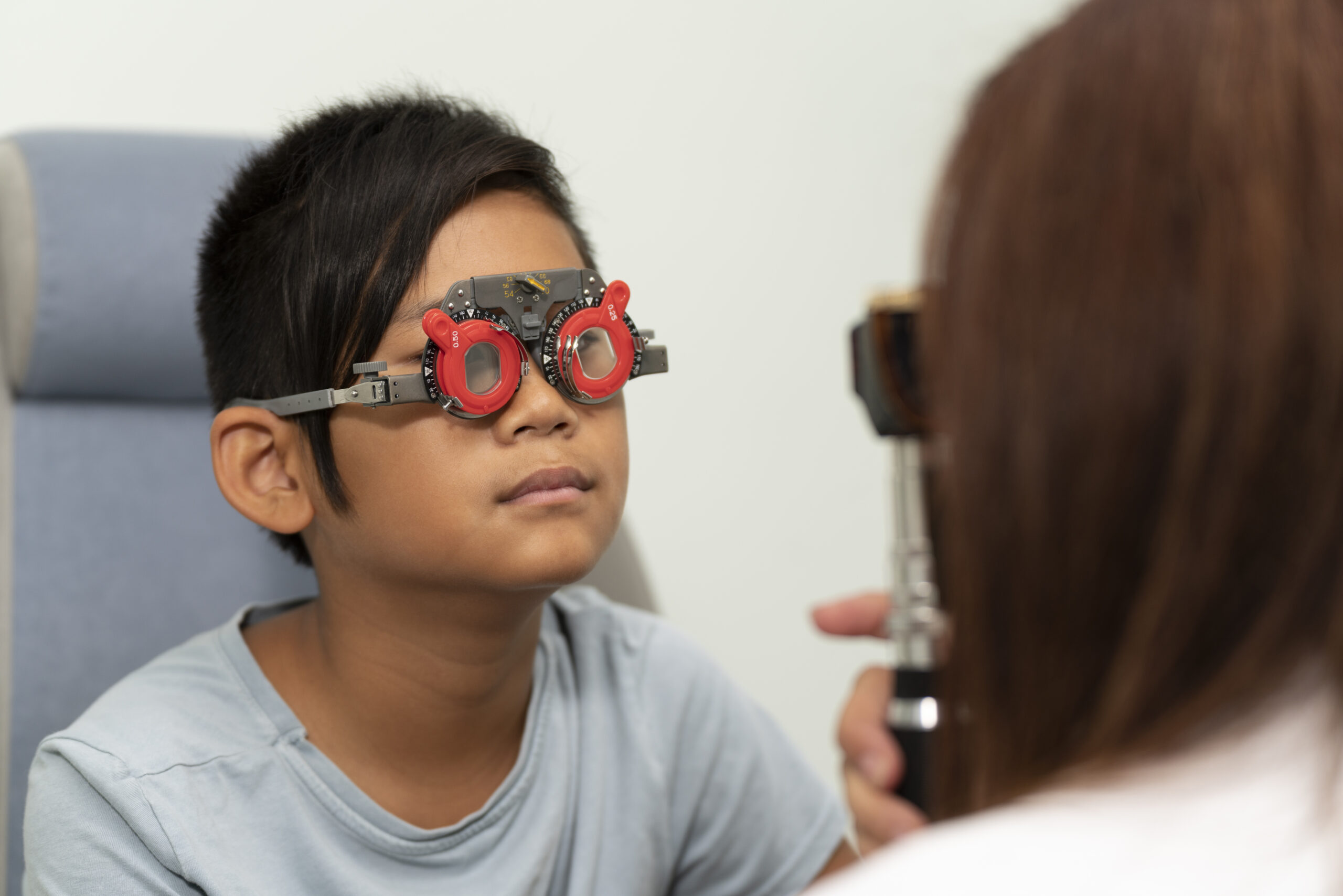Paediatric Ophthalmology
Children’s visual problems and eye disorders are the focus of the subspecialty of pediatric ophthalmology. Regular ocular examinations are essential because healthy vision affects all aspect of a child’s life and is a basic requirement for social and academic functioning. Myopia, hyperopia, astigmatism, conjunctivitis, or pink eye, eye rubbing, squinting, misalignment of the eyes, watering of the eyes, and other vision-related conditions are among the common concerns that children encounter with their eyes.







Problems affecting our kid’s eye
It has been found that 1 in 6 children experience vision-related issues. Some of the most common issues affecting children are as follows:
Ask the Best Paediatric Ophthalmologists In Mumbai to treat your child’s eye.
Good eyesight is essential for a child’s proper growth, both mentally and physically. Early detection of visual problems can guarantee timely treatment if present. In addition to performing regular exams and fittings for lenses, a trustworthy ophthalmologist can treat a variety of vision-related conditions in children, including infections and refractive problems. Many conditions include squinting, lazy eyes, blocked tear ducts, and eye injuries.
Good To Know Paediatric Ophthalmology Questions
For youngsters, routine eye exams are essential since their visual systems are still developing. Undiagnosed visual issues can have an impact on a person’s ability to study, perform well in school, and enjoy life in general. Children can achieve their full potential and avoid future vision problems by receiving early screening and treatment for any eye abnormalities.
Around six months of age is when the American Academy of Ophthalmology advises that children undergo their first thorough eye checkup. Interventions that are more successful can result from early discovery of any developmental problems or ocular abnormalities. It is recommended to schedule follow-up eye exams at age three and then right before the start of school, at age five or six.
Watch out for symptoms like scratching your eyes a lot, squinting, tilting your head, having trouble focusing, being sensitive to light, having trouble with hand-eye coordination, or habitually sitting too close to the TV or holding books too near. It’s crucial to arrange an eye examination if your child complains of headaches or double vision, or if you observe any of these symptoms.
Even though newborns frequently have some degree of eye misalignment, it’s crucial to get the condition evaluated by a pediatric eye expert. Correcting the condition early on can help avoid long-term vision difficulties. Untreated crossed or misaligned eyes can result in amblyopia, or lazy eye, which can impair the development of vision.
When spending time outside, it’s crucial to make sure children wear sunglasses with 100% UV protection because their eyes are more vulnerable to UV radiation. Wide-brimmed hats can also offer additional protection from the sun’s harmful rays. When playing outside, taking regular breaks from digital gadgets might help avoid digital eye strain.
A disorder called amblyopia, or lazy eye, occurs when one eye fails to develop normally in childhood. It may be brought on by various conditions, crossed eyes, or a notable discrepancy in refractive error between the eyes. It is important to have treatment and diagnosis as soon as possible. This usually entails patching the stronger eye to help the weaker eye gain better vision.
Children sometimes experience anxiety before eye exams, especially if it’s their first time. By providing a clear and comforting explanation of the procedure, you can assist in easing their anxieties. Their worries can be allayed by speaking positively, highlighting the doctor’s support, and possibly even scheduling a visit to the eye clinic prior to the exam.
Recall that each child’s eye health is distinct, so the greatest method to address any worries or inquiries you may have regarding your child’s eyesight and eye care is to speak with a trained pediatric eye specialist.
Reach Out To Us to Know More on the Services by filling out the Form.